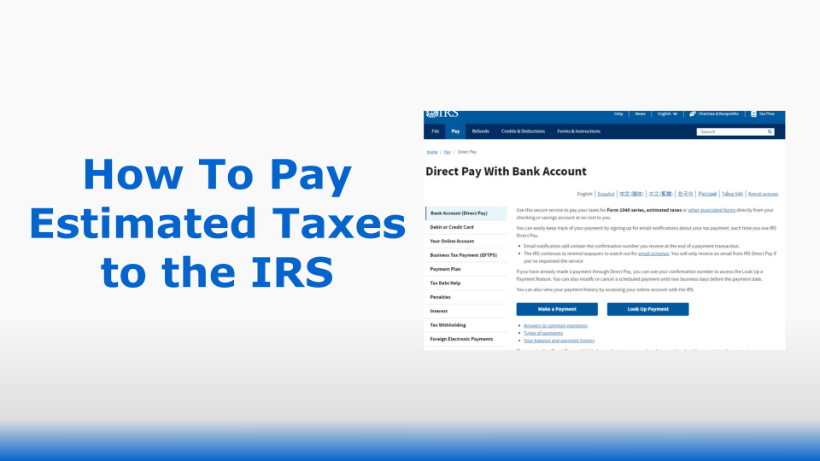7 Year-End Tax Tips
Published:During the month of December, consider these year-end tax tips that could save you money when April 15th comes around.
1) Give to Charity
If you plan on a itemizing your deductions, you can reduce your tax liability with an end-of-year donation to a qualified charitable organization. Keep in mind, if you do not itemize your deductions, then you cannot claim this type of tax deduction.
2) Sell Losing Investments to Offset Gains
If any of your investments have lost money, you can consider selling them to offset any capital gains that you may have. If you haven’t taken any gains this year, then you can still deduct up to $3,000 in capital losses.
3) Adjust Your Withholding on Form W-4
If it looks like you’re going to owe money, or if you’re going to be receiving a large tax refund, you should consider updating the number of exemptions on your IRS Form W-4 (Employee’s Withholding Allowance Certificate). Form W-4, which you file with your employer, tells them how much money to withhold from your paycheck for income tax purposes. If you want to avoid owing money on April 15th, you should increase your tax withheld from each paycheck. On the other hand, if you anticipate a large refund, you may want to reduce the amount of tax withheld.
4) Open an IRA, or Contribute to an Existing IRA
If you do not have a retirement plan at work, you can contribute to a traditional IRA and possibly get a deduction on this year’s taxes. If you do have a retirement plan at work, you can contribute to a Roth IRA and pay no taxes when you withdraw the money in retirement. Either way, your investments grow tax-free.
5) Make an Excludable Gift
IRS rules allow each individual to “gift” up to $14,000 per year (per donee) without incurring the gift tax. If you’re planning to make a large gift, consider making all or part of the gift before the end of the calendar year. That way, you can count the gift towards your 2017 annual gift tax exclusion. This will allow you to make another tax-free gift in 2018 if you want.
6) Evaluate — and Spend — Your Flexible Spending Account (FSA)
If you have money taken out of your paycheck pre-tax and put into Flexible Spending Account (FSA) for medical expenses, then it’s recommended that you do two things.
First, make sure you are spending all of the money. Flexible Spending Accounts are usually “use it or lose it,” so if you don’t spend it by the end of the year, the money could disappear.
Second, look at the amount you are having withheld from your paycheck. Does it accurately reflect your expenses? If you have too much withheld, you’ll lose the money at the end of the year. If you have too little withheld, you could end up paying a lot in taxes.
7) Bunch Your Expenses
Sometimes you can only take a tax deduction if the total exceeds a certain percentage of your Adjusted Gross Income (AGI). This most often occurs with medical expenses and miscellaneous deductions on your Schedule A (Form 1040).
According to the IRS, “you can deduct only the amount of your medical and dental expenses that is more than 10% of your AGI.” To take full advantage of these deductions, you may be able to bunch them into a given year. If you’ve already exceeded the threshold for deducting medical expenses, then see if you can accelerate future expenses into the current year. Similarly, if you cannot meet the threshold for 2017, you might want to see if you can put off the expenses until after the New Year.
For more information, please see IRS Publication 502 (Medical and Dental Expenses) and IRS Publication 529 (Miscellaneous Deductions).



